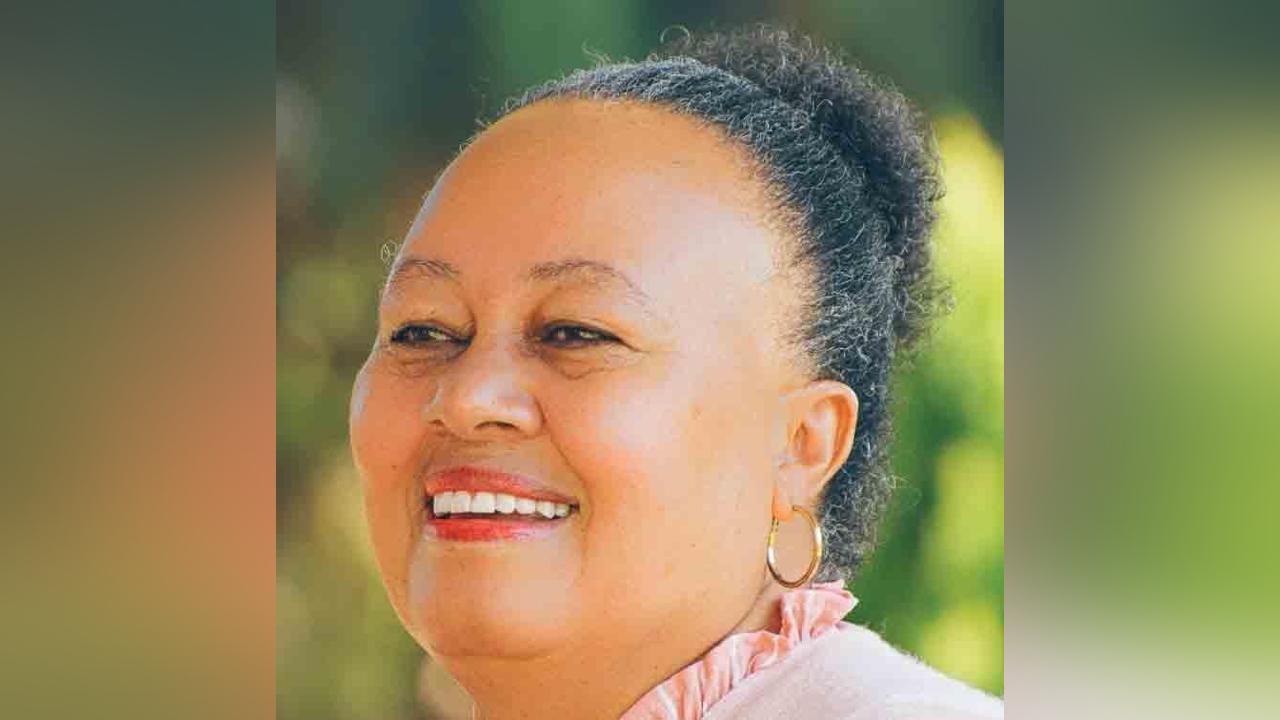Africa-Press – Lesotho. Once upon a time. There once existed a kholumolumo (dinosaur) who swallowed all the people in the world except one pregnant woman. She eventually gave birth to a baby boy whom she named Senkatana.
In time, the boy became a mighty hero when he confronted this monster with his shield and spear and freed all the people. When the people met their young rescuer, they were thrilled and asked him to be their ruler. But the question that remained was how long they would be satisfied with his rule.
September is marked the National Ovarian Cancer Month on the calendar and it’s during this time that many organisations and other women, myself included, honour the courage of those affected by ovarian cancer and renew the commitments we once made to fight this disease that takes the lives of far too many women.
Cancer is defined as a group of diseases involving abnormal cell growth with the potential to spread to other parts of the body. So, ovarian cancer is the growth of cells that form and multiply quickly in the ovaries and like all cancers, it is brutal and cruel, inflicting pain and suffering for women and their families.
Treatment of this cancer usually involves surgery and chemotherapy. Its symptoms may include abdominal bloating, weight loss, discomfort in the pelvic area, back pain and changes in bowel habits among others.
It is still not clear what causes this cancer but doctors have identified things that may increase the risk of the disease such as old age, inherited gene changes, post-menopausal hormone replacement therapy, endometriosis and never having been pregnant.
Even though doctors managed to pick a few risk factors that may increase the chances of acquiring this cancer, they do not have a sure way to prevent it. But taking birth control pills may help reduce its chances with you, many women have confirmed this.
The latest WHO data published in 2020 reported 0.07% of total deaths by ovarian cancer in Lesotho and the age adjusted death rate of 3.01 per 100,000 of population ranked Lesotho number 145 in the world.
It was also rated the No 4 cause of cancer deaths in women between 2003 and 2007 and the median age of women diagnosed with it was 63. This cancer is very rare and deadly and because of its rarity many women are diagnosed with it at an advanced stage.
Research shows that despite ovarian cancer rates being highest among white women, black women are more likely to die from this disease because of lack of access to health care centres.
In the past years many initiatives have been implemented to raise awareness and improve healthcare capacity to mobilise funds to strengthen interventions on breast, prostate and cervical cancer but ovarian cancer has always been left out although it may hinder “nation building”.
Former First Lady Maesiah Thabane during her time in office swore to establish a fully equipped cancer centre that would provide improved care for Basotho diagnosed with cancer.
Today we have the Senkatana Oncology Centre (name inspired by the tale at the beginning of this article) and this is all thanks to the Bristol Myers Squibb Foundation (BMSF), Ministry of Health (MoH), the National University of Lesotho (NUL) and Dr Kabelo Mputsoe, the Mountain Kingdom’s very first Oncologist.
Dr Mputsoe is a Clinical Radiation Oncologist and the first Specialist in Clinical Radiation Oncology in Lesotho. She holds a managerial position as Head of Non-Communicable Diseases Section Focal Person in Cancer Prevention and Control Programmes.
Some of her responsibilities include leading the NCD section with strategic objectives such as to raise the priority accorded to the prevention and control of non-communicable diseases in Lesotho agendas and internationally agreed development goals through strengthened international cooperation and advocacy.
The new Senkatana Cancer Clinic is manned by Dr Kabelo Mputsoe, the oncologist, Dr ‘Maseabata Ramathebane who is representing the NUL, Dr Pearl Ntšekhe of the MoH and Phangizile Mtshali representing the BMSF.
I was very fortunate to talk to one ovarian cancer survivor who was diagnosed with this disease at 35. She is now 62. She told me that after so many screening tests the results came back and she was told she had stage four ovarian cancer.
What traumatised her most was when they put a timeline on her life and said she had six months left before she could die. She went to see one top gynaecologic-oncologist who performed a radical hysterectomy and at his suggestion underwent six rounds of chemotherapy.
Although she beat the cancer, she lost the ability to bear any more children. Hysterectomy is a surgical operation to remove all or part of the uterus.
Most women find it hard to conceive after undergoing this surgical procedure. Though it may be possible, it is very rare (to fall pregnant) for the uterus is removed and there’s nowhere to house the baby.
Such pregnancies often result in ectopic pregnancy because the embryo would implant in some place most likely the fallopian tube. My message to women this month is: please make it a must to know your bodies and be observant with any changes you may notice, both normal and abnormal.
Cancer screening is essential and never miss any session because early detection and proper treatment are significant factors in the battle against ovarian cancer.
“It is therefore imperative that all of us become familiar with the symptoms of ovarian cancer and the conditions that place us at an increased risk”. May we remember to make good use of the Senkatana Oncology Centre so that we can lead healthy, happy, and full lives, cancer-free.
For More News And Analysis About Lesotho Follow Africa-Press






